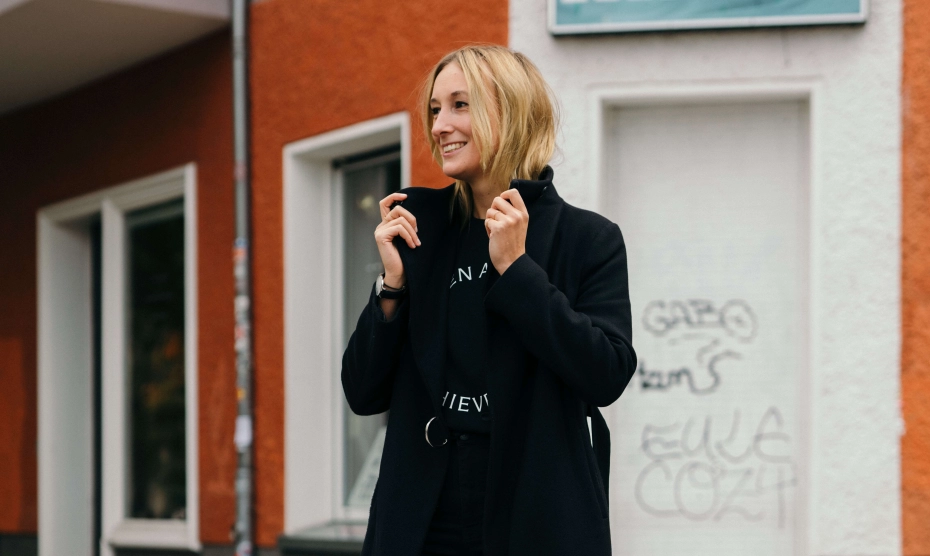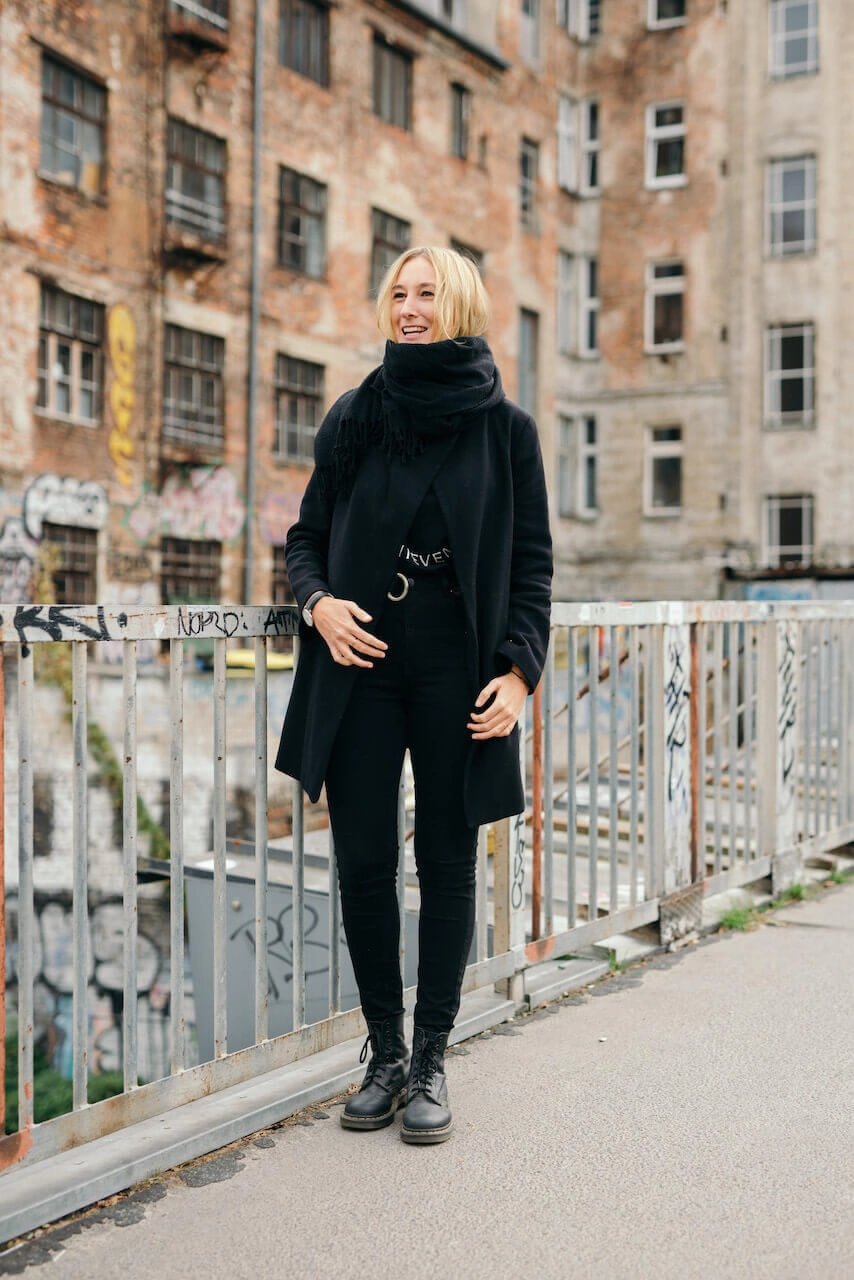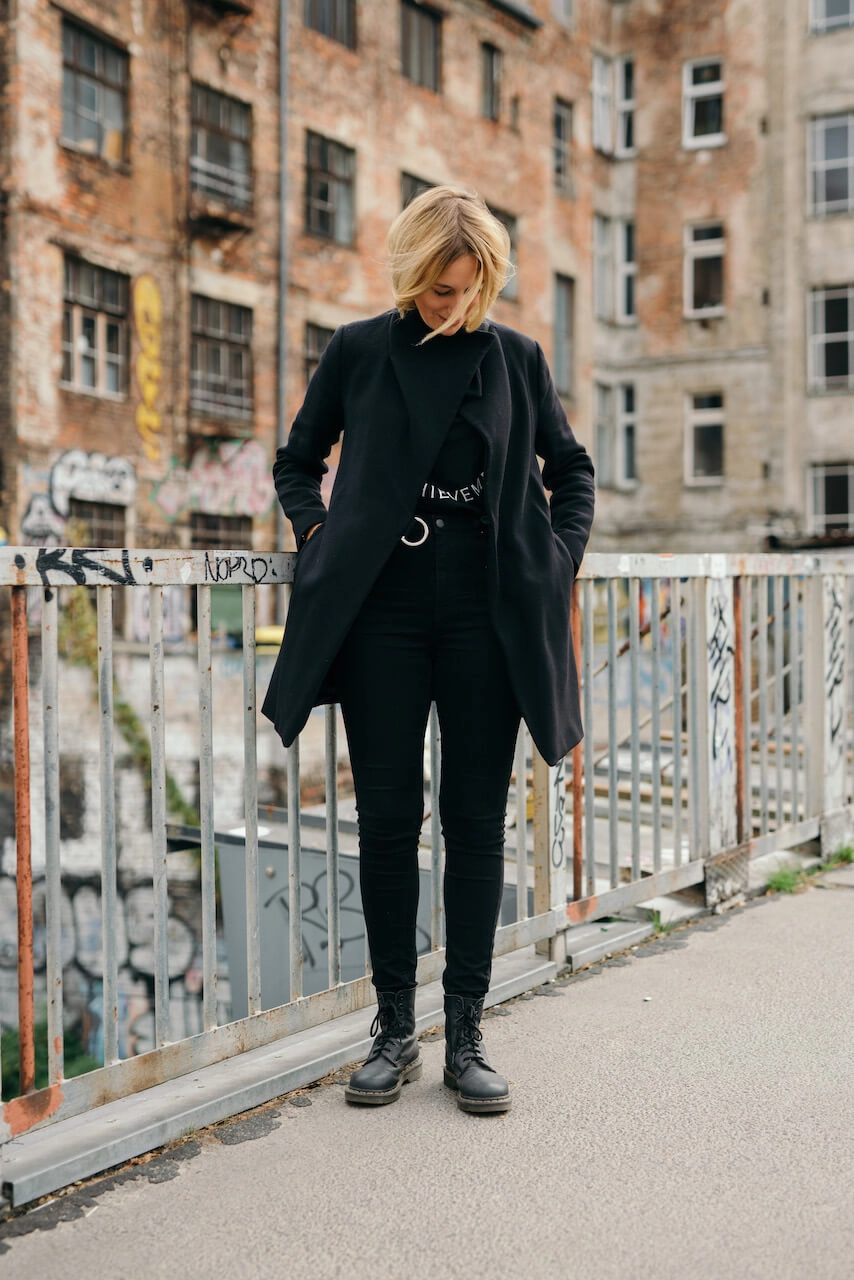Marieke Reimann
Marieke Reimann is a journalist and Deputy Editor-In-Chief of SWR by ARD. She’s responsible for the transformation of a traditional broadcasting company to a more digital and modern one. Previously, Marieke was the Editor-In-Chief of ze.tt, an online magazine for young adults that was part of the widely read German newspaper ZEIT, where she covered topics such as queer history, left-wing politics and much more.

Marieke, tell us a bit about your background and how you became a journalist?
I grew up with a single mother and younger sister in an East-German Plattenbau building during the nineties in Rostock. My mother worked full time and partly in two jobs at the same time. Most of the media stories back in the 90s and early 00s were only covering stories out of a Western German perspective. When I consumed media in my childhood, I always wondered why there weren't any stories about people from different backgrounds. I was really angry about this because when people like East Germans or people with migration background were included, the stories were described in a really stereotypical way. For example pictures from Eastern Germany were always shown with Trabi’s, the GDR cars, or Plattenbau houses. That’s why I decided to become a journalist, to try to change the way minorities were being portrayed in the media.
How did Berlin influence your journalistic and creative work?
I came to Berlin in 2014 more by accident. I finished my Master's degree while I was freelancing as a sports journalist. I realized I really liked the city because of its history and mix between so many cultures. Foreigners come here to be creative and enjoy the diversity. One important thing I realized about myself over the years is that I'm gay and it’s easy in this city to live whichever way you want to. I think a lot of people here have similar experiences like me. I grew up without any role models and a lot of stereotypes from the media, so it really wasn’t that easy to discover a queer lifestyle.
And you say that the historical part of Berlin isn’t as present in the minds of people as you wish it was?
People who come to Berlin tend to be more focused on continuing their own cultures and traditions. They are not really interested in how GDR was just banished out of the public eye in the city. The Berliner Schloss, for example, had been a building from a real monarchic time, and the politicians of GDR decided to blow it up and replace it with the Palast der Republik. Back in the 90s, when the GDR didn’t exist anymore, the Western politicians decided to blow the building up and rebuild the castle again. So tell me: What’s the correct way to obtain history?


What makes up your personal Berlin?
My personal Berlin is full of graffiti and all the different ways the city can be portrayed through the lens of a photo camera. I had always been really into street photography and urban art and when I moved here, I fell in love with the city because of its difference in lights and shades, architecture and people - a melting pot of different stories, waiting for you to discover.
As a journalist, who is your Woman Author of Achievement?
It's really difficult because I’ve always wondered if I have one. I didn’t have particular female journalists I looked up to growing up, which is why I wanted to become this person for others. Some things are going really wrong in this country and it’s up to us to make the changes to prepare for a better life for the future generations. That is why I am not afraid to speak out loud and stand up for my convictions, even if it means I’ll get hate mails and all that creepy stuff young women have to deal with, when they state their opinion in public.
